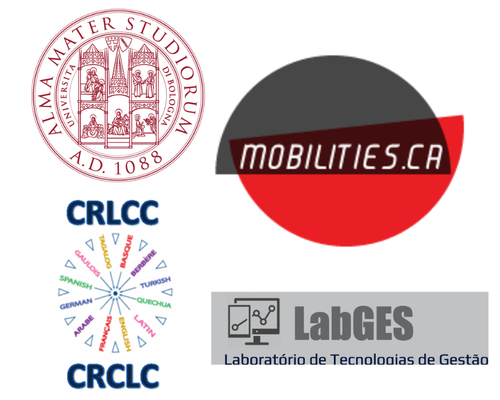
Alma Mater Studiorum – University of Bologna is involved with two Departments: LILEC – Department of Modern Languages, Literatures and Cultures & DISI – Department of Informatics – Science and Engineering. LILEC has been selected as a department of excellence by the Italian Ministry of Education in 2017 as a crossroad of cultural and learning experiences. It is an active partner in a series of renowned University and City Festivals promoting cultural activities to foster intercultural dialogue and open access to cultural productions. In particular, LILEC is very active in international networking, having a series of collaborations with various operators in the field of culture, knowledge and research. DISI is a top informatics departments in Italy, offering an exciting work and learning environment to its students, teaching staff, research fellows and personnel. Its goal is to contribute to the advancement of society through education, research and technology transfer. The department provides one of the strongest centres for computer science and engineering research, covering diverse areas such as artificial intelligence, autonomic and complex systems, bio-informatics, networks, information systems and semantic web, programming languages, hardware and software systems and their applications in medicine, energy, environment, society and more.
Mobile Media Lab (MML), Concordia University, Montréal. Concordia University is renowned for its multidisciplinary approach to teaching and course planning, which are oriented towards important social issues and the challenges of complex, multicultural societies. Within Concordia University, MML is a privileged meeting point between the humanities and the scientific and technological area; it also has a laboratory that hosts a variety of projects, which aim to create inclusive, trans-media educational experiences. The ACT project, for example, operates within the area of “digital ageism”, also in terms of technological know-how. Quite consistently, Concordia is also a leading institution in drawing guidelines and protocols to develop integrated forms of inclusive teaching methods and ODL (open distance learning) and, as such, the ideal partner to share and consolidate expertise in these fields.
Centre for Research on Language and Culture Contact (CRLCC), York University, Toronto. This center is specifically dedicated to build international networks which aim to share specific actions (research, but also teaching methodologies and memoranda of understanding) on socially and politically relevant subjects in multicultural and multilingual contexts. It is a new-generation hub that is particularly engaged in the Third Mission; therefore, it has become now strategic to consolidate a co-operation which can be effective on academic dynamics in order to integrate teaching methodologies and research with an active exchange with society at large.
Universidade do Estado de Santa Caterina (UDESC) is involved with two centers: Laboratório de Tecnologias de Gestão (LabGES) and SAPIENTIA - Group of Studies of Organizational Transformations: Labor Relations and Society of the Graduate Program in Administration. The two groups have been operating together for some time with the mutual objective of analyzing the applications and the impact of computational technologies on society. Their practical goal is to develop technologies to support joint actions and co-operation between virtual societies (also by means of innovative teaching laboratories) and develop management techniques for voluntary co-operation in social networks, e-participation, e-inclusion.